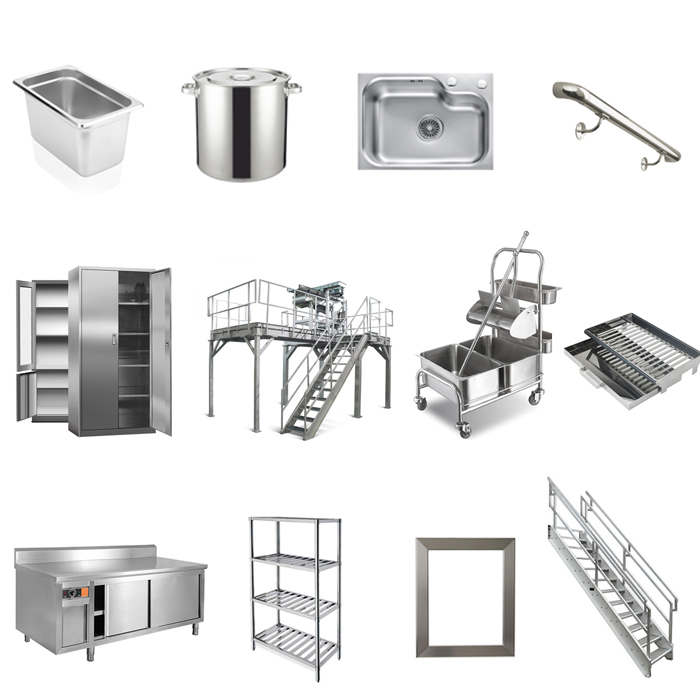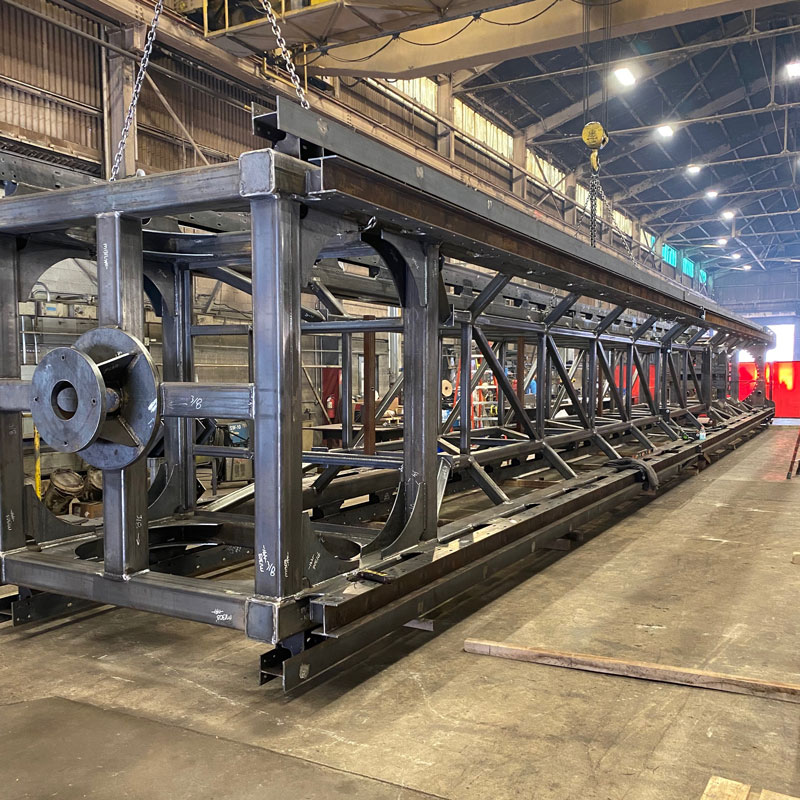The Ultimate Handbook on Personalized Steel Fabrication Solutions for Structural Projects
In the world of structural jobs, the significance of custom-made steel fabrication solutions can not be overemphasized. From the foundational understanding of steel manufacture fundamentals to the detailed process of choosing one of the most suitable materials, every action in this journey plays a crucial role in the utmost success of a project. As we navigate with the intricacies of design considerations, manufacture processes, and quality assurance measures, a comprehensive manual functions as a directing light for specialists seeking excellence in steel construction options. Remain tuned to uncover the insights that can reinvent the means architectural projects are approached and performed.
Comprehending Custom-made Steel Construction Fundamentals
Looking into the basics of custom-made steel fabrication offers insight into the intricate procedure of changing raw steel right into customized structural components. Custom steel fabrication is a specialized manufacturing technique that involves cutting, shaping, and putting together steel materials to develop one-of-a-kind frameworks according to certain job requirements. Understanding the essentials of personalized steel manufacture is critical for making certain the effective execution of architectural jobs.
The process typically starts with the evaluation of project requirements and style requirements. This first stage involves thorough preparation and collaboration in between fabricators, developers, and designers to figure out the most ideal method for making the steel elements. Accuracy is essential throughout the fabrication procedure, as even small inconsistencies can affect the architectural integrity of the last product.
Different techniques, such as cutting, welding, and shaping, are used to change raw steel into the wanted structural elements. Skilled makers use advanced equipment and devices to guarantee precision and uniformity throughout the fabrication procedure. Quality assurance measures are carried out to validate the integrity of the produced parts prior to they are assembled on-site, making sure conformity with industry requirements and job requirements.
Selecting the Right Steel Materials

Primarily, the sort of structural task and its details demands play a vital function in identifying the most ideal steel products. Aspects such as the load-bearing ability, ecological conditions, and desired life-span of the framework will determine the quality and type of steel that should be made use of.
Additionally, the physical residential properties of the steel, including weldability, toughness, and ductility, must straighten with the project's demands to ensure optimal efficiency and toughness (steel fabrication melbourne). Additionally, factors to consider such as rust resistance, cost-effectiveness, and schedule of the steel materials need to likewise be taken into account throughout the option process
Layout Considerations for Architectural Projects
Structural jobs necessitate careful attention to create considerations to guarantee both functionality and security are focused on throughout the building procedure. When it comes to designing structural tasks, a number of vital factors need to be taken right into account to ensure the success of the undertaking. By thoroughly thinking about these facets during the style stage, designers and architects can make certain the structural job's success from perception to completion.
Simplifying Manufacture Processes for Efficiency

Furthermore, carrying out lean manufacturing principles can dramatically improve effectiveness in steel manufacture. By minimizing waste, enhancing operations, and boosting communication between various groups associated with the fabrication process, tasks can be completed a lot more promptly and with click here to read higher high quality requirements.
In addition, establishing a well-organized production routine and process can aid in focusing on jobs, assigning resources efficiently, and conference job target dates without delay. By having a clear plan in place and frequently checking progression, any kind useful link of potential traffic jams or hold-ups can be recognized and addressed quickly, guaranteeing effective and smooth construction processes for structural projects.
Quality Assurance and Project Management in Steel Fabrication
To ensure the successful implementation of steel manufacture tasks, precise high quality control steps and efficient project management techniques are important components in maintaining accuracy and conference client expectations. Quality assurance in steel manufacture includes rigorous evaluations at various phases of the manufacture procedure to confirm compliance with task specs and industry standards. This includes material screening, dimensional checks, and weld evaluations to ensure architectural stability and safety and security.
Project monitoring plays a vital function in working with the different aspects of steel manufacture jobs, such as scheduling, source allocation, and interaction among group members. A distinct job strategy with clear goals, landmarks, and timelines helps to monitor progress and deal with any kind of prospective concerns proactively. Efficient interaction between all stakeholders, consisting of clients, makers, professionals, and designers, is vital for making sure that the project advances efficiently and fulfills the desired high quality criteria.
Conclusion
In final thought, personalized steel fabrication plays an important duty in architectural projects by offering tailored services utilizing the appropriate materials and design considerations. Effectiveness in construction procedures, quality assurance, and effective project administration are necessary for effective end results. By recognizing the basics of customized steel manufacture and applying structured procedures, task groups can supply high-quality and durable structures that meet the particular needs of their clients.
Custom steel fabrication is a customized manufacturing strategy that entails cutting, shaping, and constructing steel products to produce special structures according to particular project requirements.To make certain the effective implementation of steel construction projects, meticulous top quality control actions and effective task monitoring methods are vital components in maintaining accuracy and meeting client assumptions. Quality control in steel construction involves strenuous assessments at different stages of the manufacture process to validate conformity with task requirements and market standards (Alpha reo).Task administration plays an essential duty in collaborating the various facets of steel fabrication tasks, such as scheduling, source allowance, and communication amongst team participants.In conclusion, personalized steel construction plays a crucial function in structural jobs by giving tailored remedies using the appropriate materials and style factors to consider